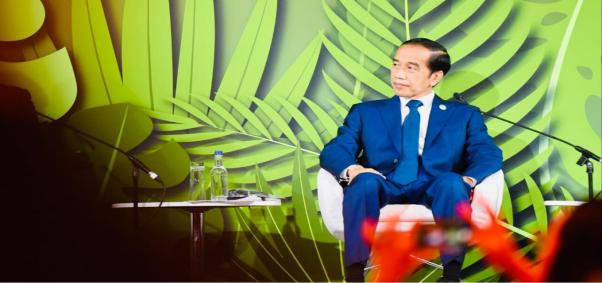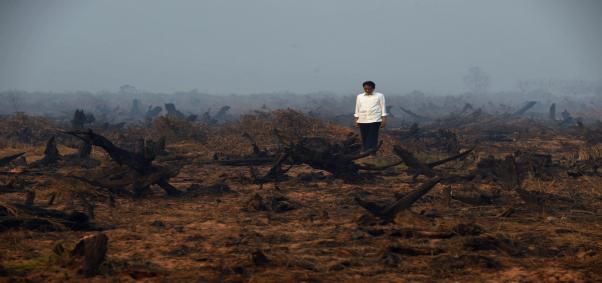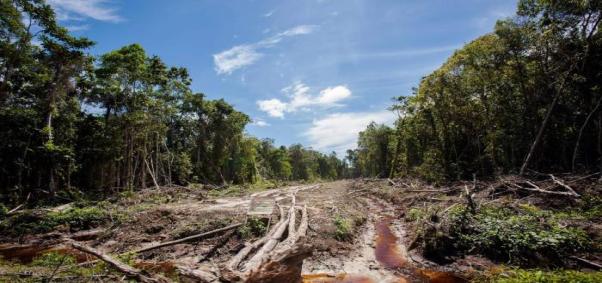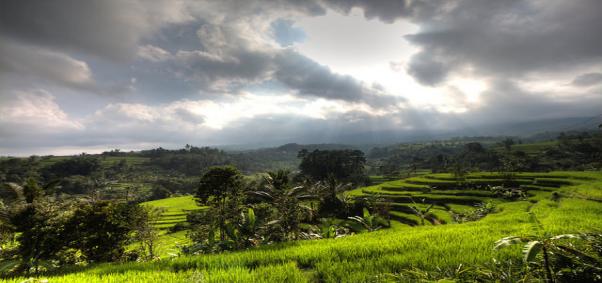
PRESS RELEASE
Partnership Towards Indonesia's Science-Based Low Carbon Development
Jakarta, 8 August 2018 - The Ministry of National Development Planning (PPN)/National Development Planning Agency (BAPPENAS) together with development partners support the Low Carbon Development Initiative. This partnership, led by Minister of National Development Planning/ Head of BAPPENAS, consists of government institutions, research institutions, development partners, international organizations and the private sector, including International Institute for Applied Systems Analysis (IIASA), the New Climate Economy, WRI Indonesia, Global Green Growth Institute (GGGI), World Agroforestry Centre, ESP3 - DANIDA Environmental Support Programme, System Dynamics Bandung Bootcamp and Sarana Primadata. The partnership for Low Carbon Development Initiative is supported by prominent development figures, referred to as the Low Carbon Development Commissioners. They include Professor Boediono, Professor Mari Elka Pangestu, and Professor Lord Nicholas Stern.
The partnership will support the National Medium-Term Development Plan (RPJMN) 2020-2024 that considers carrying capacity and enivornmental capacity, including climate change, and relies on science and knowledge to guide planning decisions.
Indonesia's Low Carbon Development Initiative was launched at the United Nations' annual climate meeting in Bonn, Germany in November 2017. It intends to lay out strategic policies to achieve a balance between economic growth, poverty alleviation and reduction of greenhouse gas emissions. This approach puts Indonesia at the forefront of countries that seek to shape strong, sustainable and climate-smart growth pathways.
"The Government of Indonesia is committed to realizing Indonesia's sustainable and continuous development. This is reinforced in the RPJMN 2020-2024, which will be based on in-depth studies to acheive a balance between economic development targets, poverty reduction, and efforts to reduce greenhouse gas emissions," said Minister of National Development Planning/ Head of BAPPENAS Bambang Brojonegoro.
Indonesia's Low Carbon Development Initiative will be baseed on Strategic Environmental Assessment (SEA), a systematic, comprehensive, and participatory series of analyses that integrates the principles of sustainability into development policies and implementation.
"Implementing sustainable development is our form of accountability as the current generation to the future generation. All stakeholders must be willing to collaborate. Public sector should have a shared vision: Policies across ministries and between the national and local government have to be synchornized. Companies and businesses need to build sustainable, energy-efficient, and low-emission suply chains. The public, as citizens and consumers, needs to actively monitor the government and buisnesses. Let us avoid leaving our legacy as a generation who neglects our responsibility," said Professor Boediono, 11th Vice President of the Republic of Indonesia and Professor of Economics at Gadjah Mada University.
Sustainable development requires strong investment from numerous sectors, on top of funding from the government and international agencies.
"Low carbon development must be accompanied by strengthened and increased investment from numerous sectors. Businesses, investment institutions, private sectors and organizations in the field of climate finance can engage, present and mobilize capital, information, incentives and facilities for infrastructure development as well as efficient and sustainable technology development. The goverenment needs to develop new investment schemes, supported by policies that create certainty for investment on low carbon development in the long run as well as suitable incentive and disincentive schemes, to create real and broad-impact investment projects," said Mari Elka Pangestu, 13th Minister of Tourism and Creative Economy and 30th Minister of Trade of the Republic of Indonesia.
Indonesia's development to date has shown isgnificant progress, i.e. above 5% in 2016 and 2017. At present, however, our natural resource capcity continues to decline due to various pressures such as urbanization, waste, air pollution, extreme weather, forest, and land fires. The quality of our biodiversity is also declining. Economic growth will not be sustainable if the capcity of natural resources and the quality of our environment are not taken into account.
"Low carbon development is the sustainable and inclusive growth story of the 21st century. There are great opportunities for Indoesia and it is setting an important example.," said Lord Nicholas Stern, Commissioner of Indonesia's Low Carbon Development Initiative, Co-Chair of the Global Commission on the Economy and Climate, IG Patel Professor of Economics and Government at the London School of Economics (LSE).
Jakarta, 8 August 2018
Parulian Silalahi
Head of Public Relations and Leadership Administration Bureau
Ministry of Development Planning
For more information:
Ministry of Development Planning
Jl. Taman Suropati No. 2 Jakarta 10310
Phone: (021) 31936207, 3905650
Fax: (021) 31901154
Email: humas@bappenas.go.id




